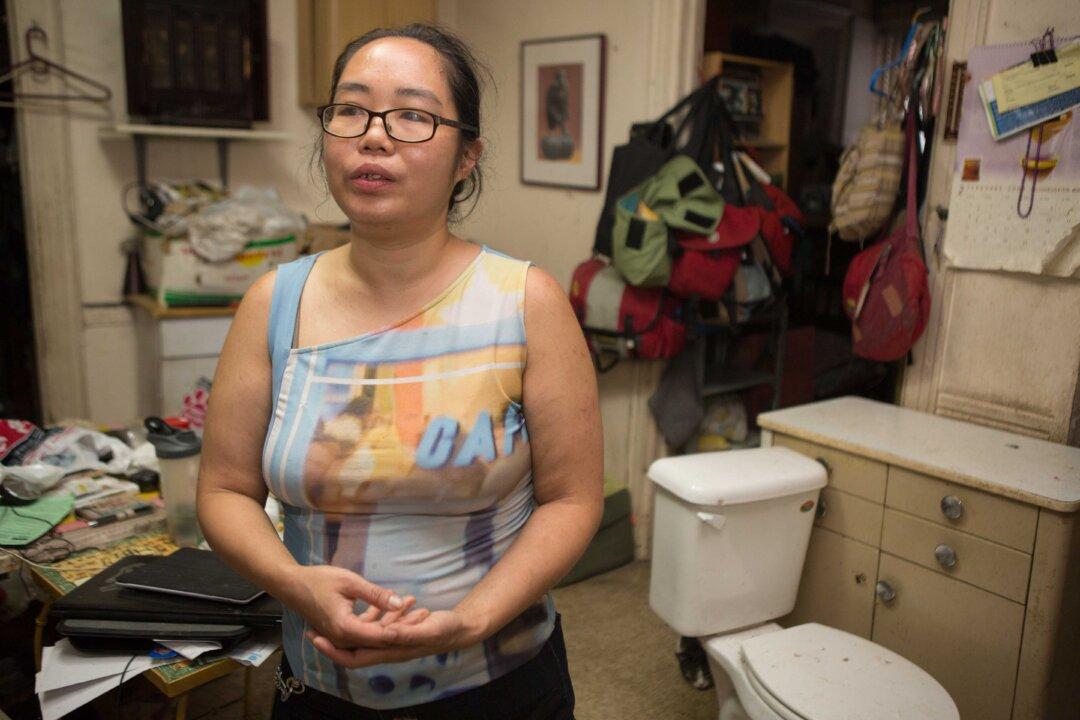NEW YORK—It looked as if nothing in Betty Eng’s Chinatown apartment was working quite the way it should be. A part of her ceiling was crumbling. Her kitchen sink pipe was disconnected. And her toilet was in her living room.
Eng, a 44-year-old radio engineer, recalled how workmen came into her apartment on July 19, mumbling something about finding the source of a leak in the building. She was feeding her 4-week-old kitten when they detached her toilet from the bathroom and set it in the living room. She recalled a workman uncharacteristically asking,“Would you like to accept a buyout?”
Her kitten is nearly 3 months old now, and the workmen have not yet returned to repair her ramshackle apartment.

Betty Eng, a radio engineer, holds a drainpipe that belongs to her toilet after repairmen said they needed to fix it but after two weeks never came back to fix it, in Chinatown, Manhattan, on April 16, 2015.
Benjamin Chasteen/Epoch Times
Benjamin Chasteen/Epoch Times




